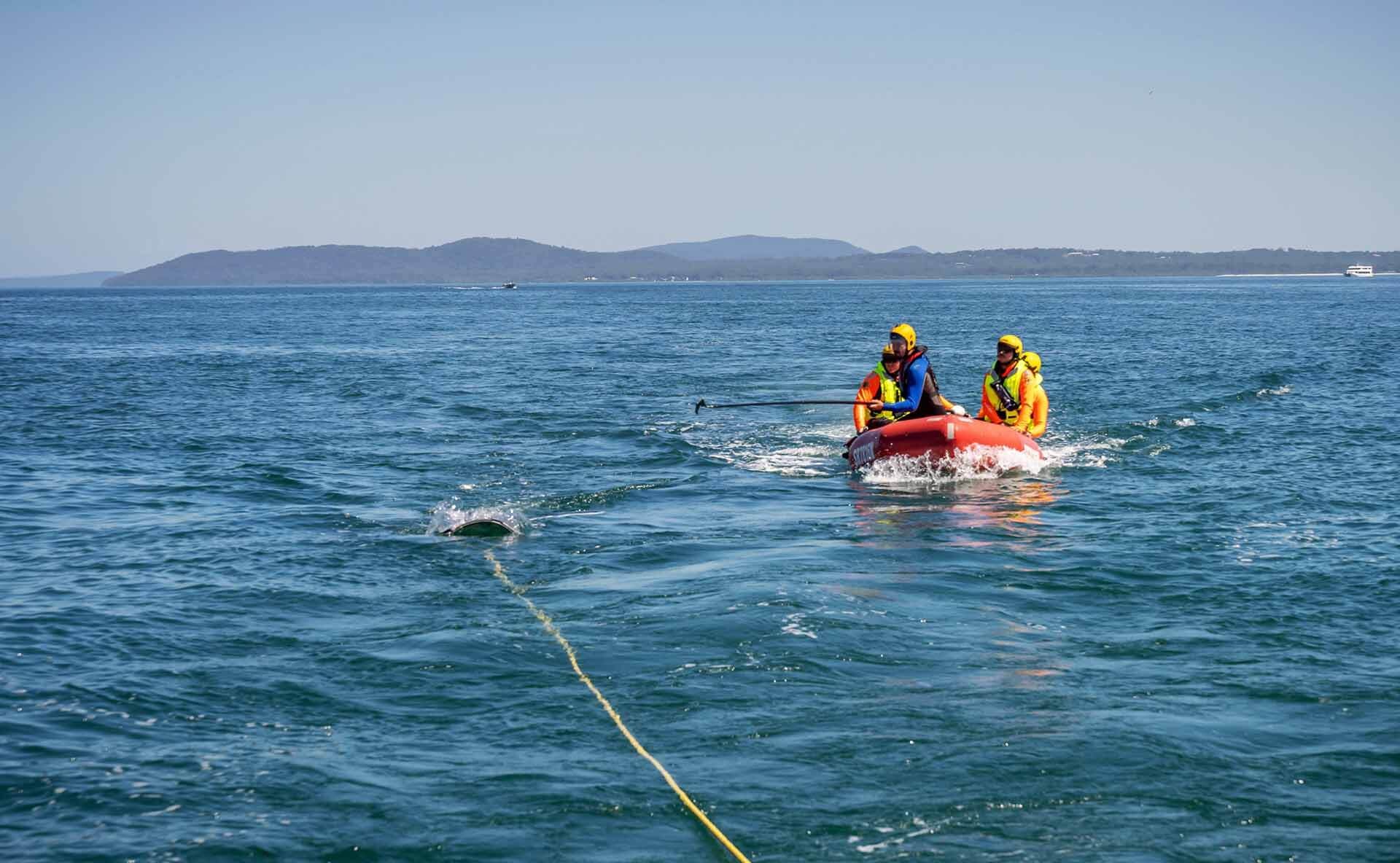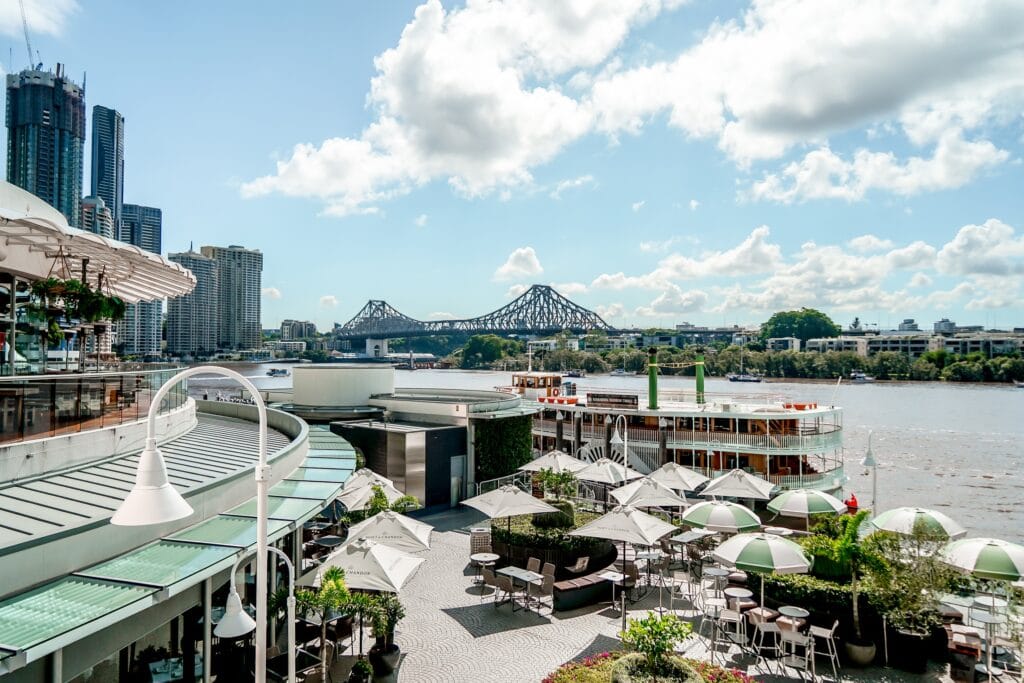The training comes ahead of the start of the annual (northward) humpback migration season. It serves to refresh skills for experienced responders and train new staff.
Marine Rescue NSW provides volunteers and vessels for the training session so rescuers can safely free whales entangled in ropes, nets and other marine debris.
Staff also learn how to stay calm, focused and safe when dealing with a panicked 30-tonne animal.
NSW Environment says that last year, 11 humpback whales were successfully freed off the NSW coast.
As most tangled whales keep swimming, sometimes faster than 5 knots (about 9km/h), relocating the whale quickly is critical, it adds.
NPWS Team Leader Conservation Doug Beckers says it is “humbling to know that a few loops of rope can bring down one of these huge, majestic animals”.
“If you do happen to spot an entangled whale, please report it to NPWS or ORRCA straight away – every minute counts,” he says.
Contact the NPWS on 13000PARKS (1300 072 757) or ORRCA on 02 9415 3333 immediately if you see an entangled whale.
“National Parks now has the capacity to deploy whale disentanglement teams right along the coast but only when conditions permit,” Becker says.
“We need the right weather, not too much swell, and enough daylight hours to safely find the animal and complete operations.”
He also had a safety message to the seagoing public.
“Humpback whales are awesome creatures which can weigh between 30 and 40 tonne so for your own safety and theirs, you need to keep your distance,” Becker says.
“All watercraft must keep 100m from a whale, or 300m if a calf is present.”
Each year, around 40,000 humpback whales migrate along the NSW coast with a few dozen becoming entangled in fishing gear or marine debris, the government says.
NPWS works with the non-profit ORRCA, Sea World Foundation, Gamay Rangers, fishing industry, Department of Primary Industries, OceanWatch Australia and Professional Fishermen’s Association to build response capacity.






